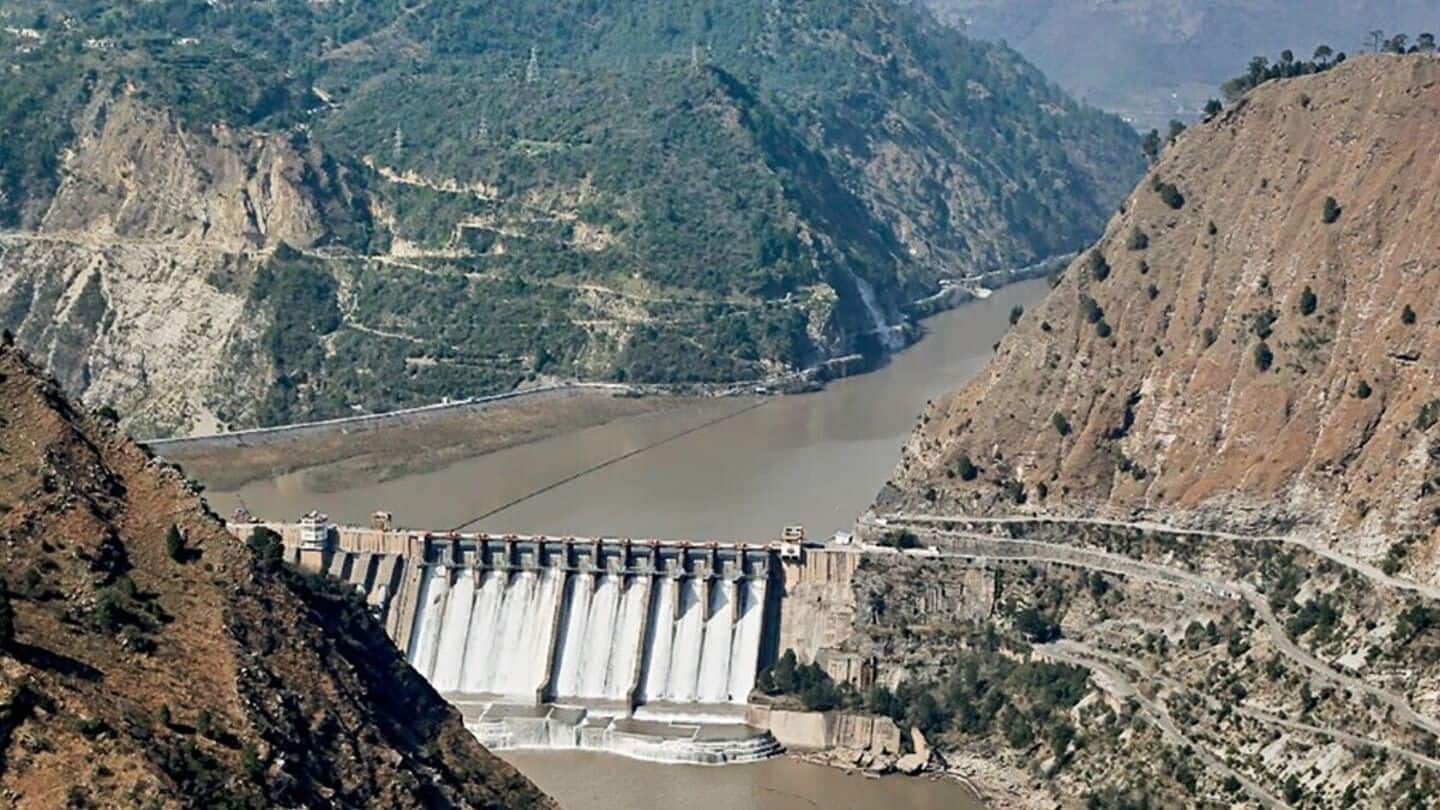
How India's Indus Waters Treaty suspension will impact Pakistan
What's the story
In a major geopolitical decision, India suspended the Indus Waters Treaty with Pakistan after a terror attack in Pahalgam, Jammu and Kashmir, killed 26 people this week.
The treaty was signed in 1960 after years of negotiations to regulate water sharing between the two countries.
It has now been suspended as part of India's five major punitive responses against Pakistan after recent terrorist attacks.
Treaty details
Indus Waters Treaty: A lifeline for Pakistan's agriculture
The Indus Waters Treaty was designed to regulate water sharing between India and Pakistan, both of which are heavily dependent on rivers for agricultural requirements.
The deal gives India free access to all water from the eastern rivers of the Indus system—Sutlej, Beas and Ravi.
On the other hand, Pakistan has rights to the western rivers—Indus, Jhelum and Chenab.
But since Pakistan is the lower riparian country, it is now at a huge disadvantage.
Agricultural impact
Pakistan's dependency on Indus Waters Treaty
The treaty is vital for Pakistan, which gets approximately 80% of its total water flow from those western rivers.
The deal is crucial for farming and irrigation in Pakistan's Punjab and Sindh provinces, with Punjab producing 85% of the country's food.
Agriculture contributes almost a quarter to Pakistan's economy and is the main source of income for 70% of the rural population.
Disruption to water flow from the Indus River could potentially cause crop failures, food shortages and economic instability.
Pradeep Kumar Saxena
India has multiple options
Pradeep Kumar Saxena, who served as Indus Water Commissioner for over six years, told PTI, "India, as an upper riparian country, has multiple options."
"Although there is no explicit provision in the Treaty for its abrogation, Article 62 of the Vienna Convention on Law of the Treaties provides sufficient room under which the treaty can be repudiated in view of...fundamental change of circumstances that has occurred with regard to those existing at the time of conclusion of the treaty."
India
Flushing can help India desilt its reservoir
According to Saxena, India is also under "no obligation" to comply with limits on the "reservoir flushing" of the Kishanganga reservoir and other projects on Jammu and Kashmir's Western rivers.
"The....treaty currently prohibits it. Flushing can help India desilt its reservoir, but then filling the entire reservoir could take days. Under the treaty, reservoir filling after the flushing has to be done in August—peak monsoon period—but with the pact in abeyance, it could be done anytime," he added.
Tactical move
India's suspension of the treaty: A pressure tactic
However, India's suspension of the Indus Waters Treaty wouldn't immediately stop the water flow to Pakistan, as there is no infrastructure yet.
At present, India can only curtail flows by 5-10%.
The treaty doesn't allow India to build reservoir dams on these rivers, but it can undertake hydroelectric "run-of-the-river" projects, which can't modify or block water flow.
Suspending it would make India go around these and start building reservoir dams, which would take years.
Treaty
Pakistan had objected to projects in past
Under the treaty, design restrictions exist on erecting projects like dams on the Indus and its tributaries.
In the past, Pakistan had objected to projects like Salal, Baglihar, Uri, Chutak, Nimoo Bazgo, Kishenganga, Pakal Dul, Miyar, Lower Kalnai and Ratle.
With the treaty in abeyance, the objections may no longer apply to new projects.
"This could also prove detrimental to Pakistan...India will now have no restriction on storage on Western rivers, particularly the Jhelum," Saxena added.